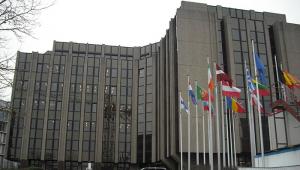In its five-yearly review of the Netherlands’ development spending, the OECD’s Development Assistance Committee praised the country’s innovations in the international development sphere.
It has integrated aid, trade and investment agenda and successfully used aid flows to mobilise private sector funding and help countries increase tax revenues.
But DAC chair Charlotte Petri Gornitzka said: “After an excellent 30-year record as one of the DAC’s most generous and predictable donors, Dutch aid is now on a downwards trend and the cost of meeting international legal obligations to host refugees has eaten into future funds for overseas projects.
“We hope the Netherlands can stem the decline in ODA, and at the same time reassert its leadership and reputation for high quality aid.”
The amount the Netherlands spends on international aid has declined in recent years. While it exceeded the UN ODA target of 0.7% of gross national income every year between 1975 and 2012, spend dropped below 0.7% in 2013, 2014 and 2016 and further steep cuts are predicted over 2017 to 2019.
In the Netherlands, all refugee costs have been reported as ODA since 2012, which means these costs take up a third of Dutch spend as a result of a high number of asylum applications. The DAC warned this put funding of core development projects at risk.
In 2015, the top six recipients of Dutch aid were Ethiopia, Bangladesh, Afghanistan, South Sudan, Rwanda and Syria.
The DAC reviews each member’s development spending every five years to monitor performance and recommend improvements.







